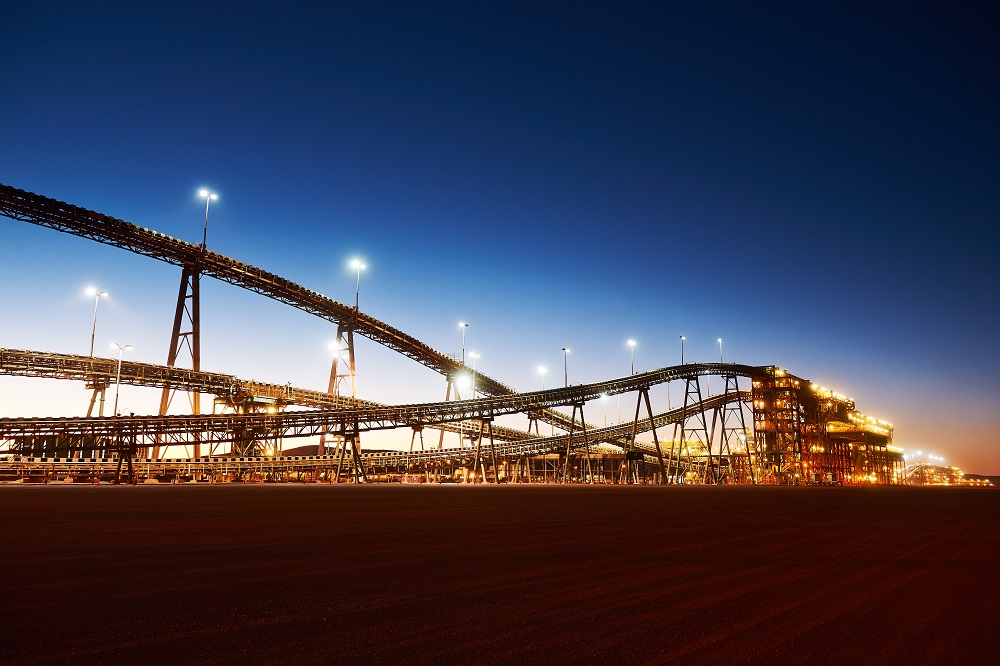
The Church of England is joining other ethical investors in mounting pressure on mining companies to end their relationships with industry groups that lobby for fossil fuels.
The financiers are campaigning to prevent the organisations from blocking the energy industry’s progress on UN goals to combat climate change.
The move supports action taken earlier this month by multinational mining firm BHP, when more than a quarter of its shareholders voted to end the company’s membership of industry bodies associated with lobbying against climate policies.
Adam Matthews, director of ethics and engagement at the Church’s pensions board, told the Mines and Money conference in London yesterday it was “enormously concerning” that some mining companies were members of groups promoting policies at odds with the goals of the Paris Agreement on climate change, reported the Financial Times.
But Matthews admitted he believes the industry will “see more resolutions coming from shareholders”.
The UN-backed Principles for Responsible Investment’s (PRI) CEO Fiona Reynolds supported his stance, as she told NS Energy: “The work of the climate-denying corporate lobbyists slows political, financial and business action.”
What the Church of England says about ethical investors and fossil fuels
The 2015 Paris Agreement, signed by representatives of 196 countries, created an international pact that aims to reduce greenhouse gas emissions and cap the rise in global temperature at “well below” 2C compared to pre-industrial levels, with less than 1.5C being the ideal scenario.
But Matthews admitted there is concern among the Church of England and other investors that the lobbying efforts of industry groups is holding up regulation and obstructing the transition to a low-carbon economy.
He said members of the ClimateAction 100+ initiative were likely to demand companies take action and end membership of industry groups where there was a “misalignment of interests”.
The scheme, which was brought together to ensure the world’s largest corporate greenhouse gas emitters take necessary action on climate change, has more than 370 investors with over $35tn in assets under management.

Matthews added that mining companies may be pressed into addressing their “Scope 3” emissions, which makes up a large proportion of the indirect emissions that occur in a company’s supply chain.
But they could also be asked to rectify the greenhouse gases emitted by the products they sell, including iron ore and coking coal that are used as key ingredients for steel-making.
Earlier this year, BHP announced it would spend $400m to develop technologies to cut emissions from its own operations and from the companies that buy its iron ore, coal, gas and other resources.
Principles for Responsible Investment on how ethical investors should treat fossil fuels
In the energy industry, fewer than 8% of companies can say their lobbying activities with trade bodies aligns with their states policy position, according to analysis by the PRI ethical investment fund.
Reynolds described this as “shocking” and said it is “completely unreasonable that companies use shareholder money to fund groups that do not act in investors long-term interests”.
“As an industry, we must acknowledge that one of the key reasons that the world is so far off the curve in limiting the world to 2C, let alone 1.5C of warming, is that the negative corporate climate lobbying is winning the day with delay, obfuscation and denial,” she added.
“Lobby groups and trade associations in the energy sector should be coordinating their industry sectors and members on TCFD (Task Force on Climate-related Financial Disclosures) compliance, brown-to-green transition plans and development of zero-carbon business models – not delaying much-needed actions to aid the low-carbon transition.
“Investors have been engaging with companies on the lobbying issue for many years but are now starting to file shareholder resolutions to demand action from companies.
“At the PRI, we have provided guidance for investors on how to tackle this issue in their engagements.
“It’s also a component of our engagements in Climate Action 100+ and an area we continue to shine light on.”
BHP shareholders take stance on fossil fuels
Over the past two months, BHP has held AGMs in London and Sydney.
At the first meeting, in the UK, just over 22% of present shareholders voted in favour of ending its membership with associations including the Minerals Council of Australia, followed by a 27% vote for the same motion at the Australian event.
Resolution 22, as it appeared on the meeting agenda, was put forward by the activist investor group, the Australasian Centre for Corporate Responsibility (ACCR).
It asked shareholders to vote on whether they supported the suspension of memberships of “industry associations that are involved in lobbying inconsistent with the goals of the Paris Agreement”.
In the end, the exercise was academic because neither meeting saw members vote to pass a resolution to “amend the constitution of BHP Group” – upon which Resolution 22 was contingent.
But it indicated growing investor concern about the affiliation of their interests with the fossil fuels industry.

Speaking after the Sydney AGM on 7 November, ACCR executive director Brynn O’Brien said: “This is a strong signal to BHP that Australian investors have woken up to the impact of anti-climate lobbying by its members, and the long-term risks it poses to their portfolios.
“This vote is even higher than the BHP Group vote in London last month, which we attribute to the proportionally larger representation of Australian investors on the BHP Group register, and the scrutiny that BHP has been under locally for the oppositional advocacy of its Australian industry associations.
“This is a huge result on a very direct call for suspension and represents an awakening for the Australian investment community.
“Lobbying counter to the goals of the Paris Agreement has been tolerated for far too long.”
O’Brien said her organisation had filed identical resolutions with Australian banking giants ANZ and NAB, due to be voted upon in December, and that Anglo-Australian miner Rio Tinto and Australian oil and gas firm Woodside would be targeted in the new year.
“The issue of lobbying is not going away,” she added.






